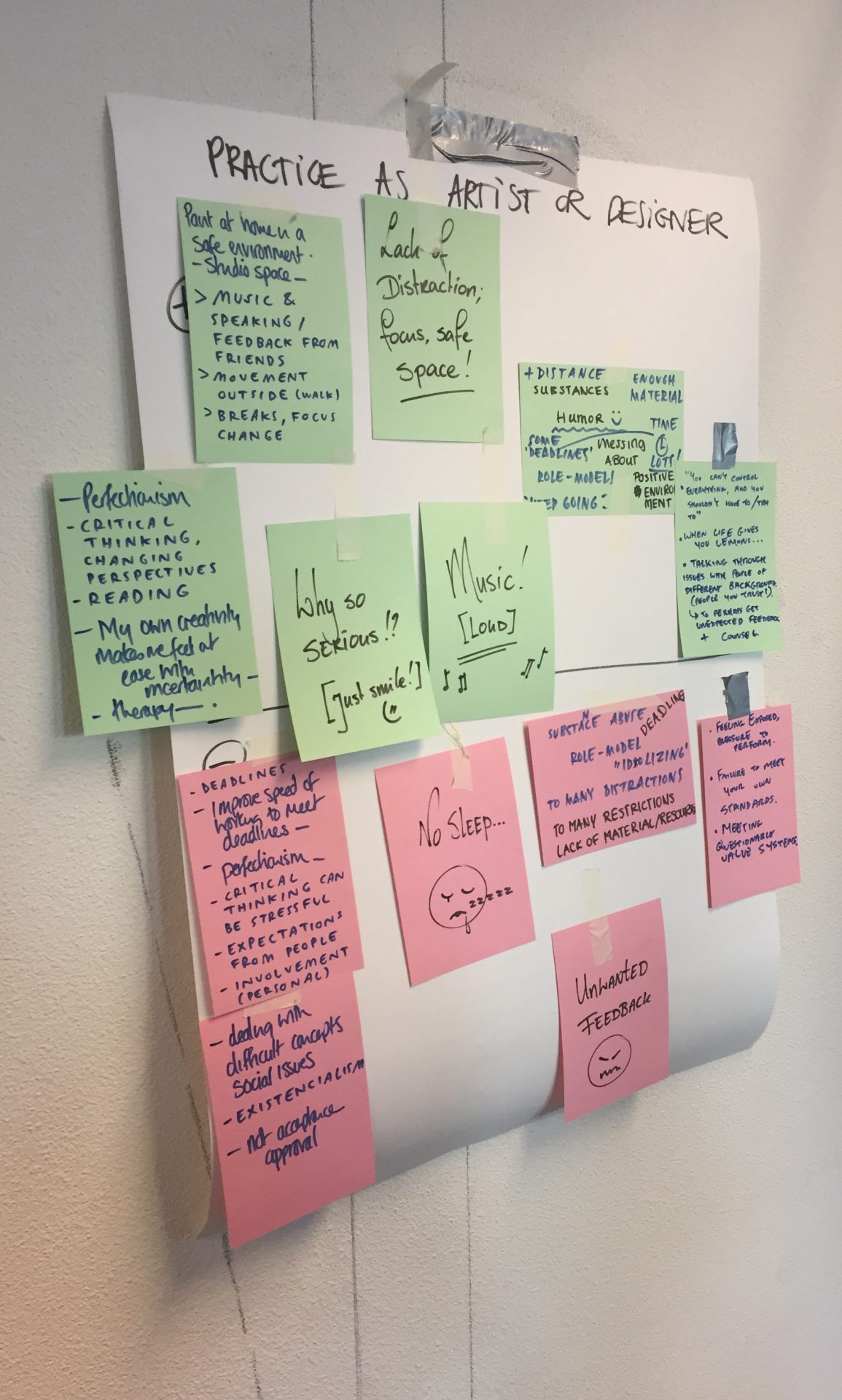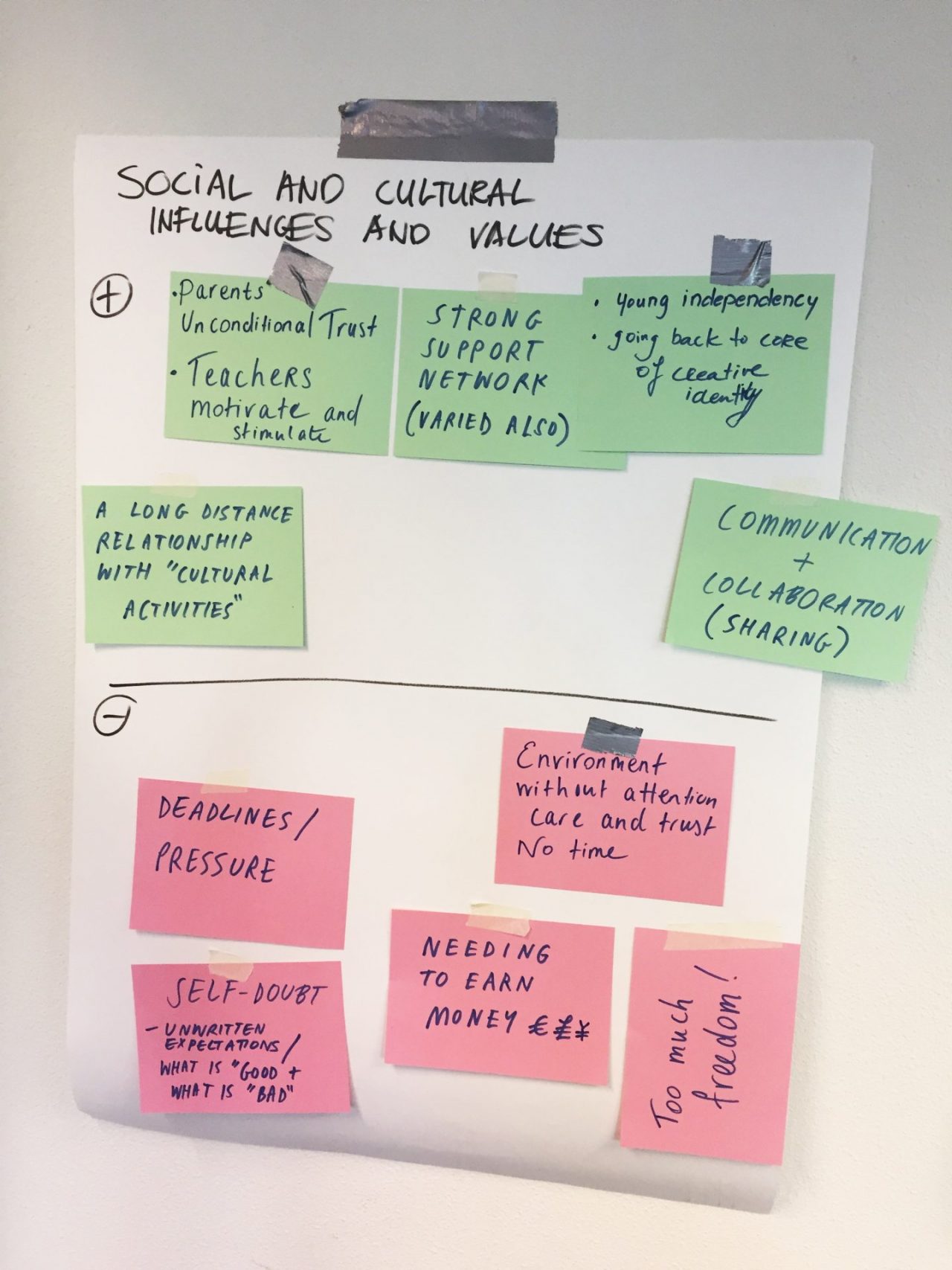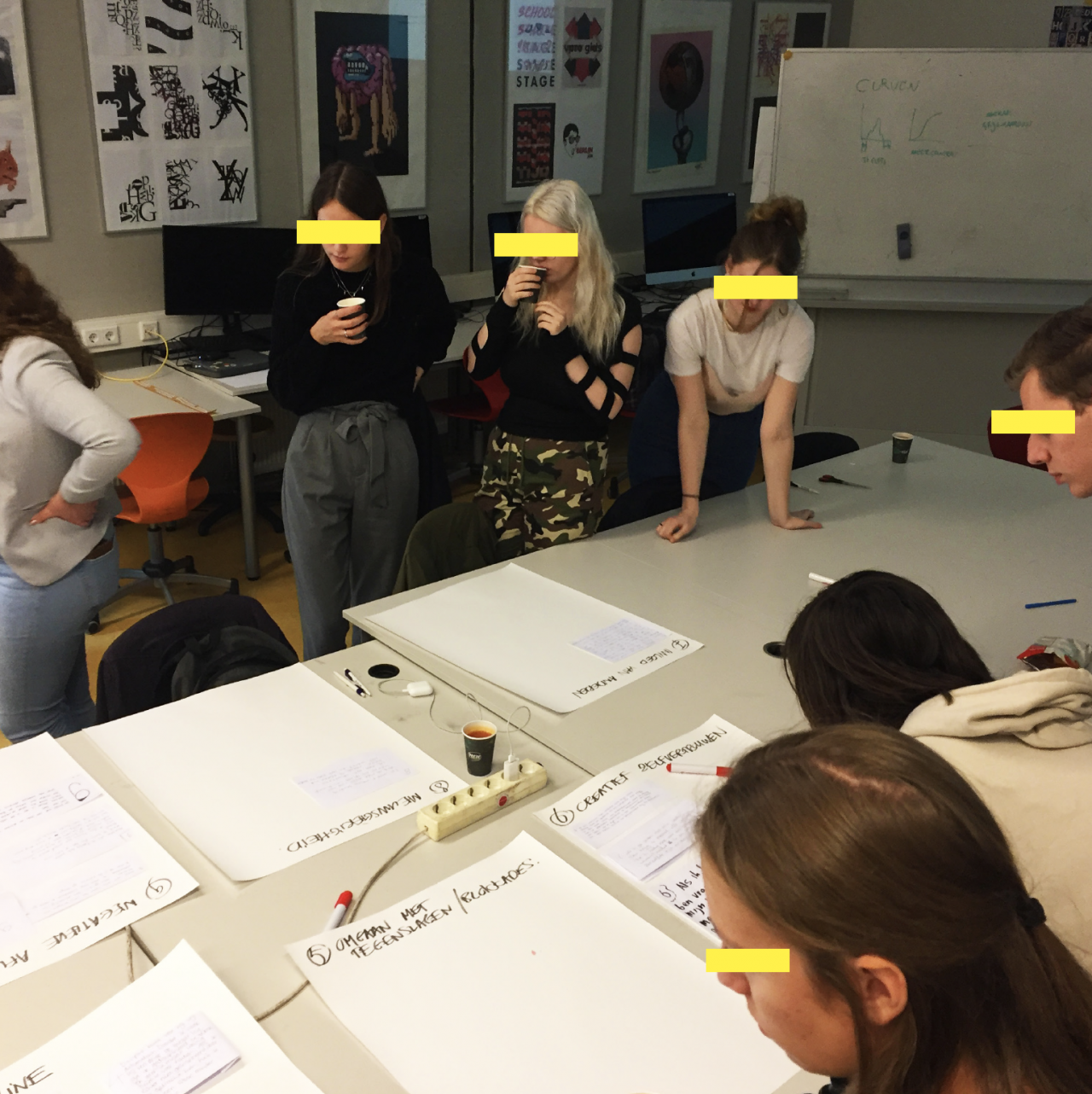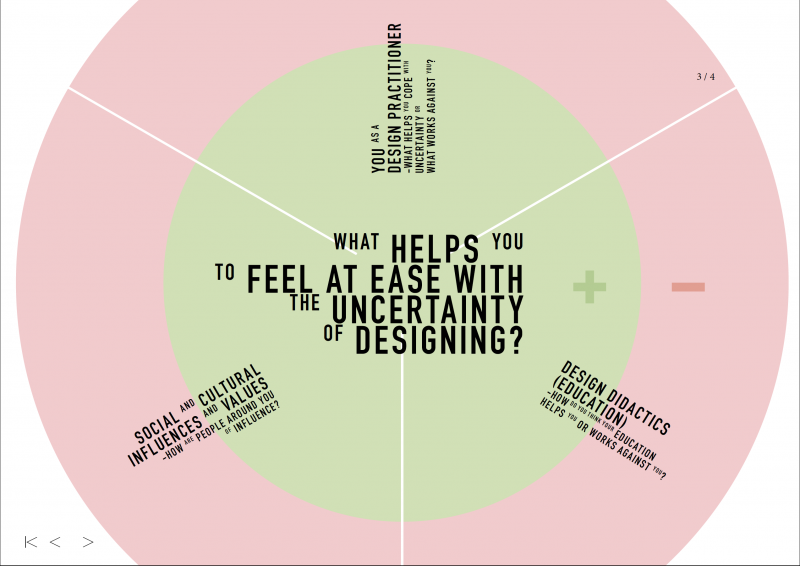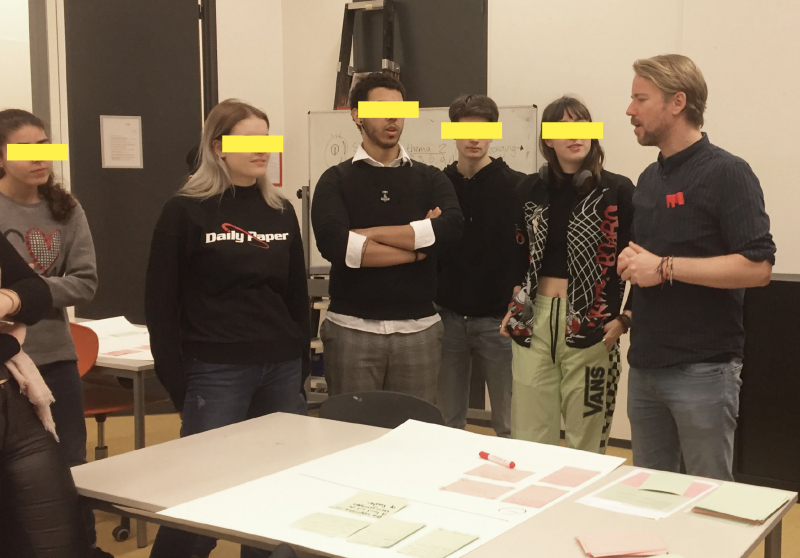Exploring Resources for Creative Self-confidence of Vocational Media Design Students
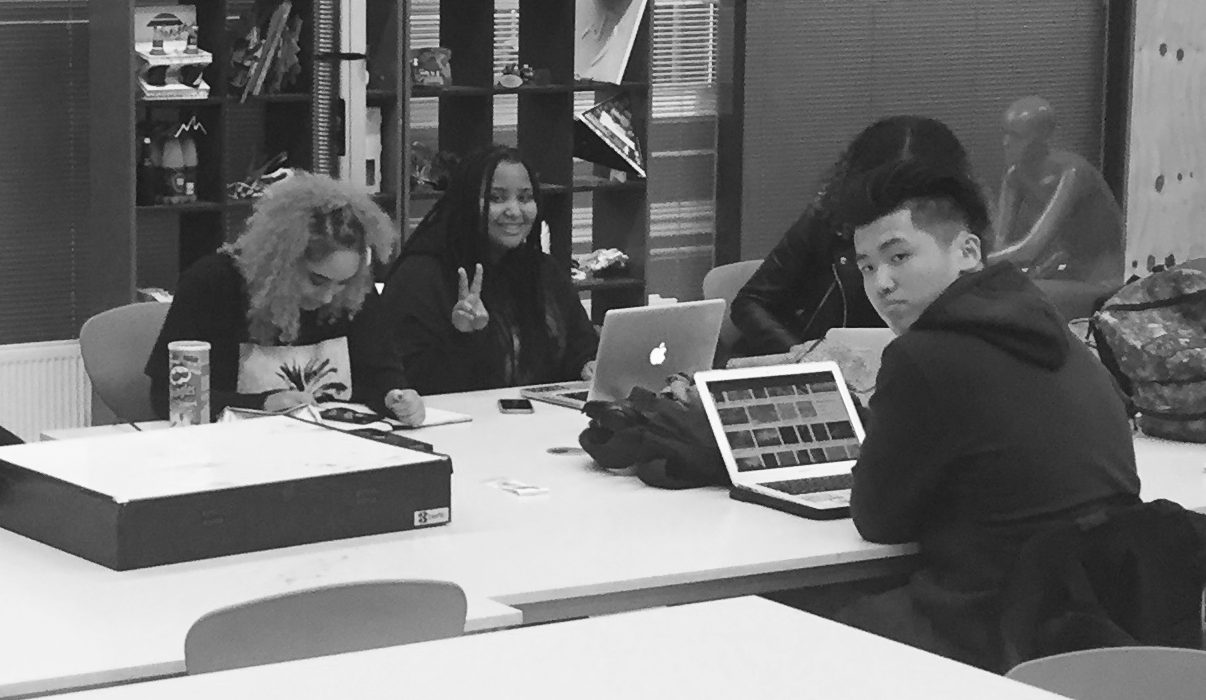
How can students be encouraged
to act towards feeling at ease with uncertainty?
“The uncertainty of design is both the frustration and the joy that designers get from their activity […].” (Cross, 2015. In the case of the vocational Media Design students I teach there can be a lot of frustration.
The design process is inherently experimental, and so in essence it has no predictable result. However, these students are from the outset very much accustomed to having to adhere to precise goals in their performance. As these concerns are opposite, the students experience tension. They regard creativity as a sudden, ‘mystical’ occurrence. It is difficult for students to know that their performance will be assessed on the basis of something that doesn’t seem to be in the realm of control. At the same time, many students think they need to instantly and constantly be original. Under such pressure, they often find it difficult to engage in a fruitful design process.
This thesis is about exploring didactical and pedagogical approaches to assist vocational media design students to feel at ease with the uncertain outcome of the design process, and to encourage them to engage in this uncertainty, to boost their self-confidence and self-direction.
In my research project I have examined several didactical and pedagogical methods and methodologies that may assist and facilitate vocational design students to engage in a more diverse, flexible and fertile design process and to provide personal agency and control in the face of an uncertain result. Eventually, the research emphasis shifted from critically examining the endorsed design process structure and its didactics to exploring more circumstantial, preconditional strategies that summon and/or affirm students’ creative confidence. Central topics that arise are about communication, trust, responsibility and opening up the ‘hidden curriculum.’ Although these aspects often remain undisclosed, implicit or not openly acknowledged, they aid to create a sort of ‘includiculum’, incorporating the ‘informal’ into the ‘formal’.
The body of research can roughly be categorised in three main fields of interest, labelled as ‘demystifying’ creativity, attribution and circumstance. Students testify about becoming more aware of their own strategies and circumstances by discussing them and getting them affirmed —in essence a matter of metacognition. They feel empowered by telling their stories and recognising themselves in each other. Subsequently, rethinking and discussing the function but also the limitations of the school environment in relation to (design) education is very much part of the metacogitive thematic and the evaluation of current vocational design didactics in this research.
Listen to students on the research thematic in both small interview settings and in classroom discussions:
Soundbites on Vimeo
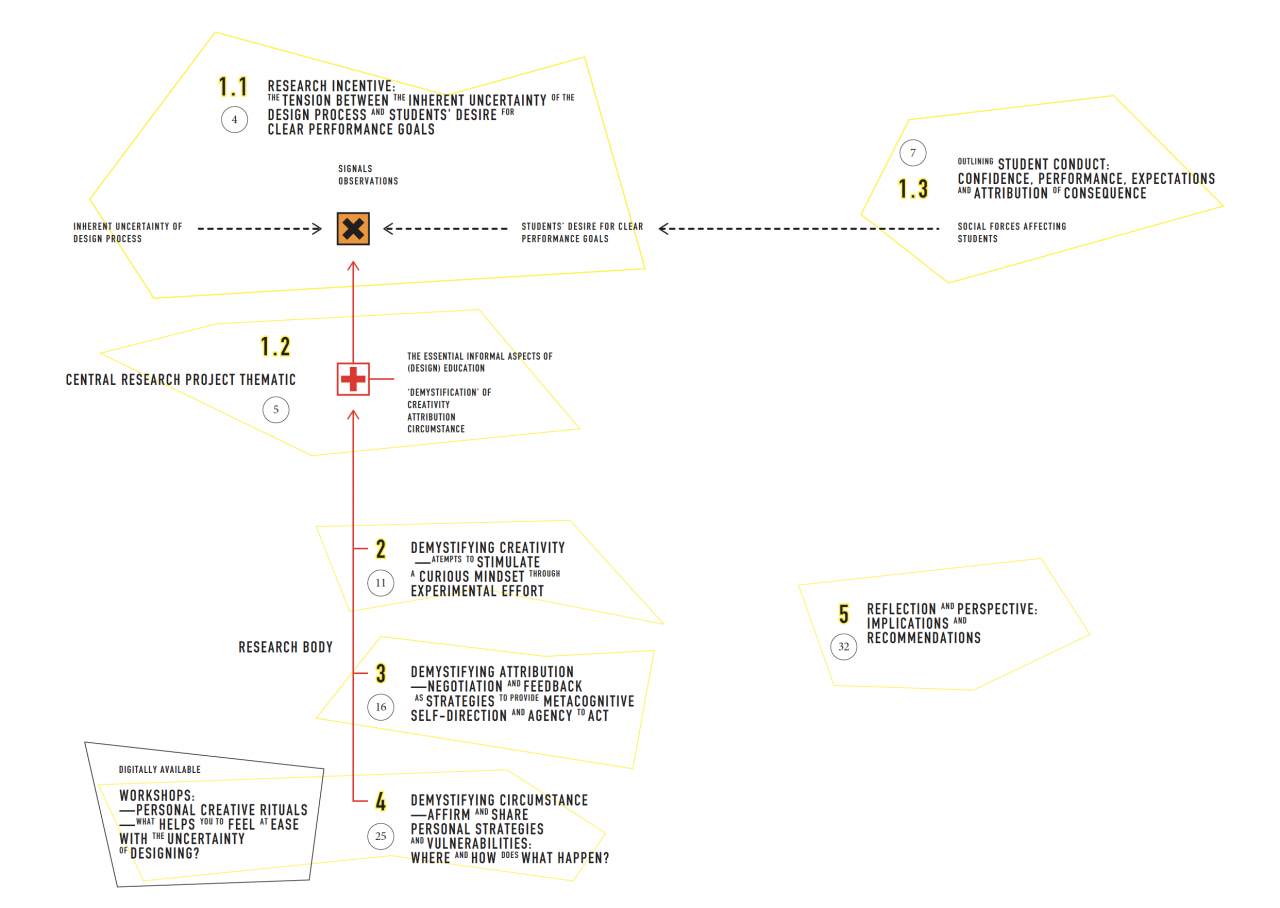
Research workshops freely available: try them out yourself!
Feeling at ease in the design process is stimulated by the act of sharing both (design) strategies and vulnerabilities.
When I first conceived these workshops during the first year of MEiA, I’ve
‘used’ them to research and map out which forces act on our students and how students engage in a design process. However, they’ve turned out to be not only a research method, but didactical method themselves. Having actual conversations on these matters shows students that others may have the same opinions as themselves and may struggle with the same obstructions. It also provides them with alternative possibilities, tips, and opportunities. Students testified that they would like to have more of these reflective
conversations. The workshops provide a possible starting point to have sustainable conversations which could have subsequent effect on students’ (creative) self confidence, emancipation and perhaps even the curriculum. They pose an opportunity to incorporate ‘the informal’ into ‘the formal’ -to include in the curriculum something essential that is normally out of sight. They help to unlock circumstances and strategies that ‘normally’ remain implicit -of pivotal importance in regard to my research thesis.
Both workshops have their somewhat own emphasis. The first workshop ‘Creative rituals’ is intended to share mostly hidden methods and methodologies surrounding design processes, attitude and workflow -the practical design effort. Collective knowledge is being made visible and subject of dialogue.
The second workshop is much more directed towards students mapping out social values and agency, motivational resources and self-confidence.
If you would like to download a free copy, please visit the MEiA graduate page or contact me personally through Linkedin or via the Piet Zwart Institute.
